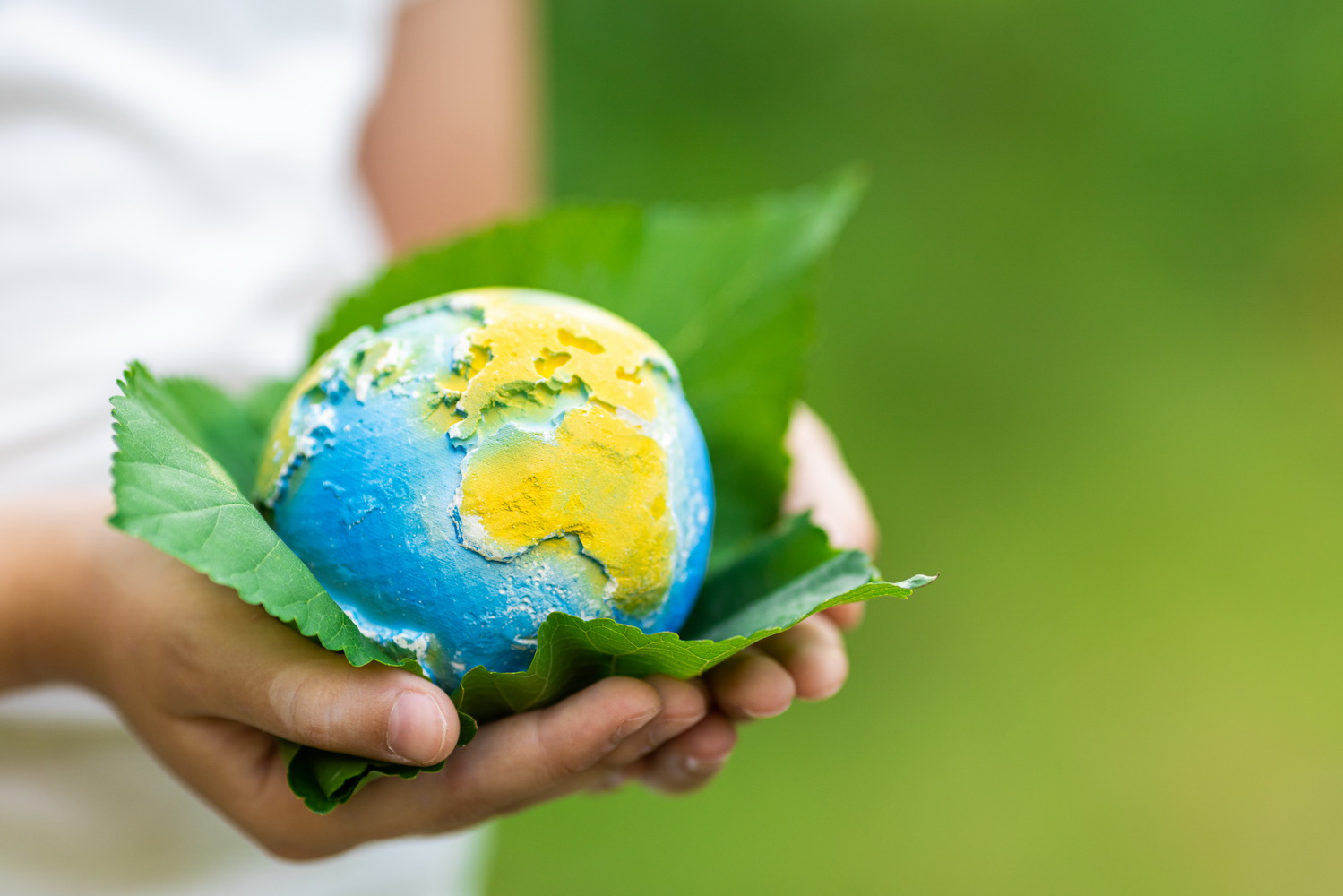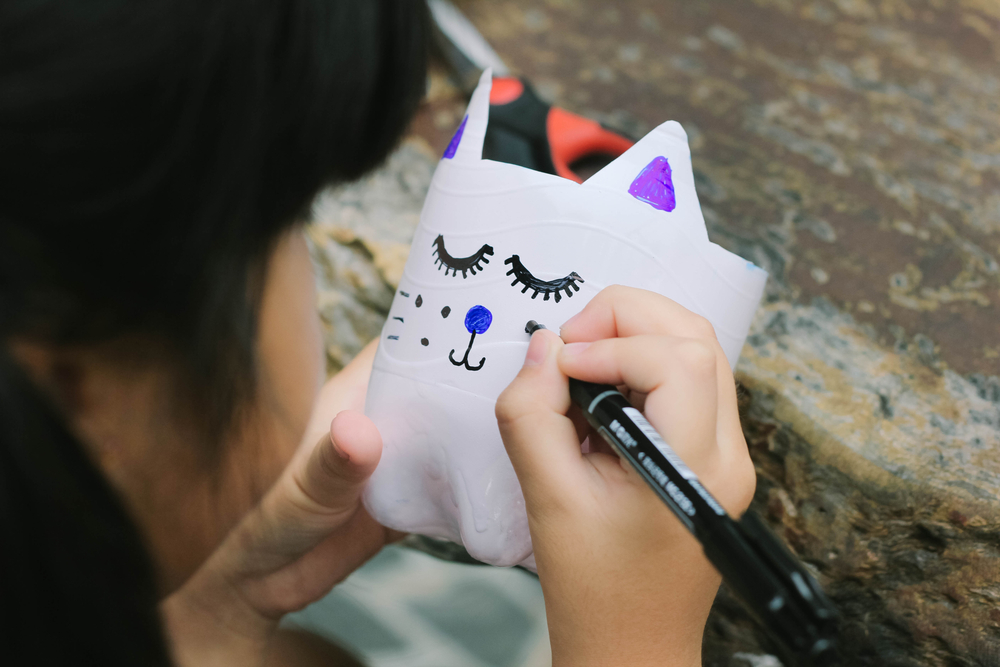Understanding natural resources Normal Our Planet and Environment Worksheets for Ages 3-9
4 filtered results
-
From - To
Explore "Understanding Natural Resources" worksheets designed for children aged 3-9, focused on fostering an appreciation for our planet and environment. These engaging worksheets introduce young learners to essential concepts related to natural resources, enabling them to grasp the importance of sustainability and conservation. Kids will enjoy fun activities that encourage critical thinking and creativity while learning about renewable and non-renewable resources. Our thoughtfully crafted resources not only enhance knowledge but also spark curiosity about the world around them. Dive into these delightful educational tools and inspire the next generation to care for our environment and cherish the richness of nature!
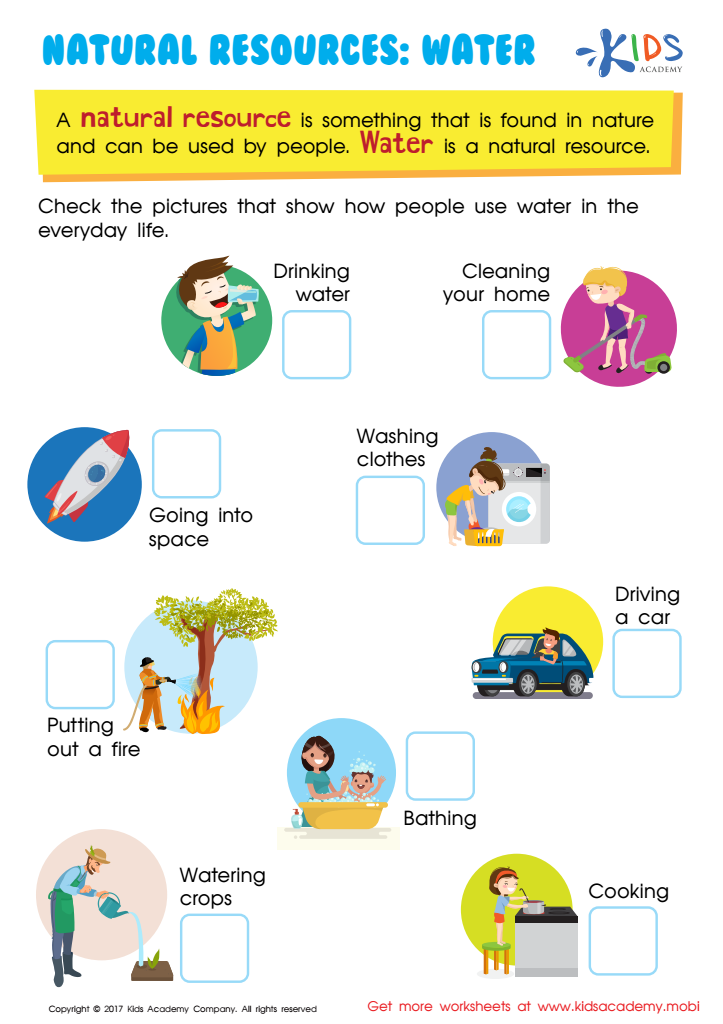

Natural Resources: Water Worksheet
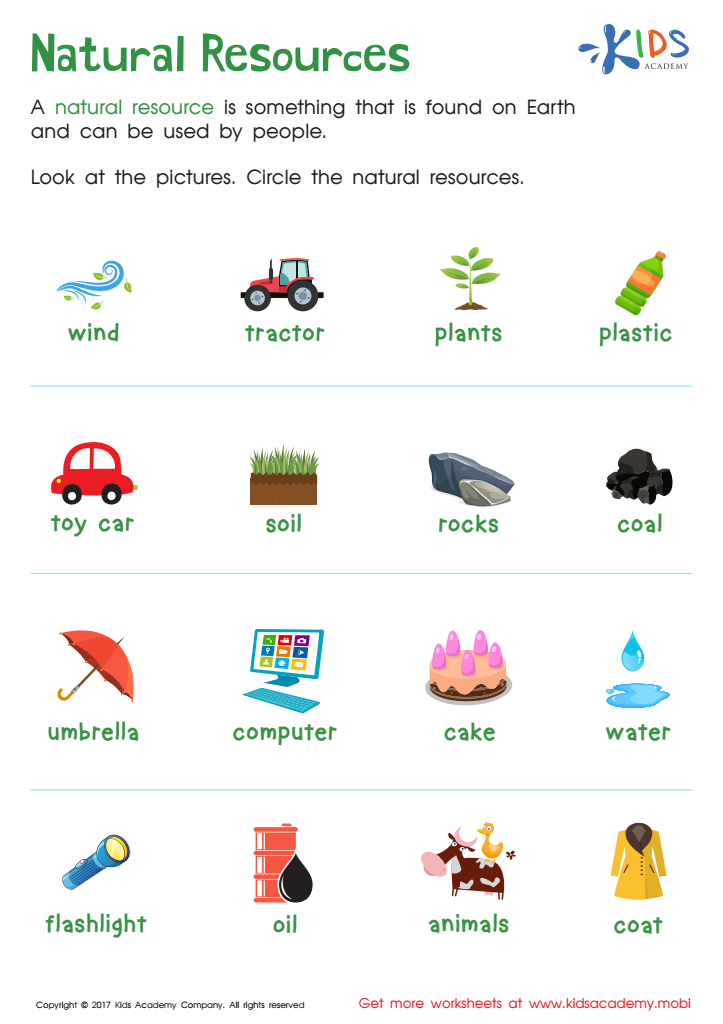

Natural Resources Worksheet
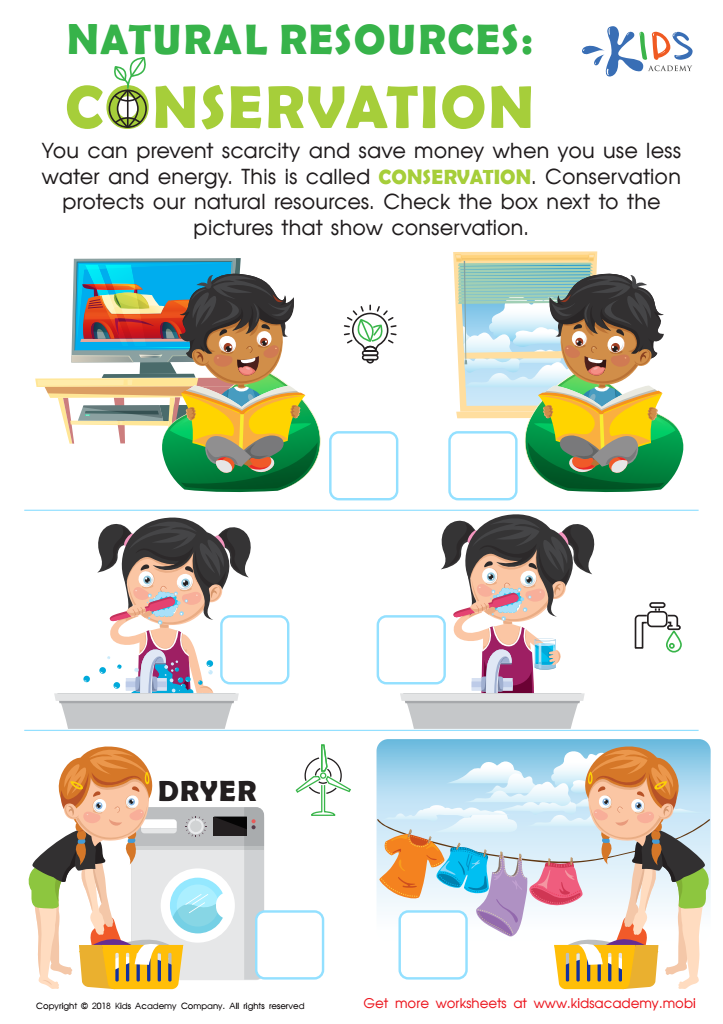

Natural Resources: Conservation Worksheet
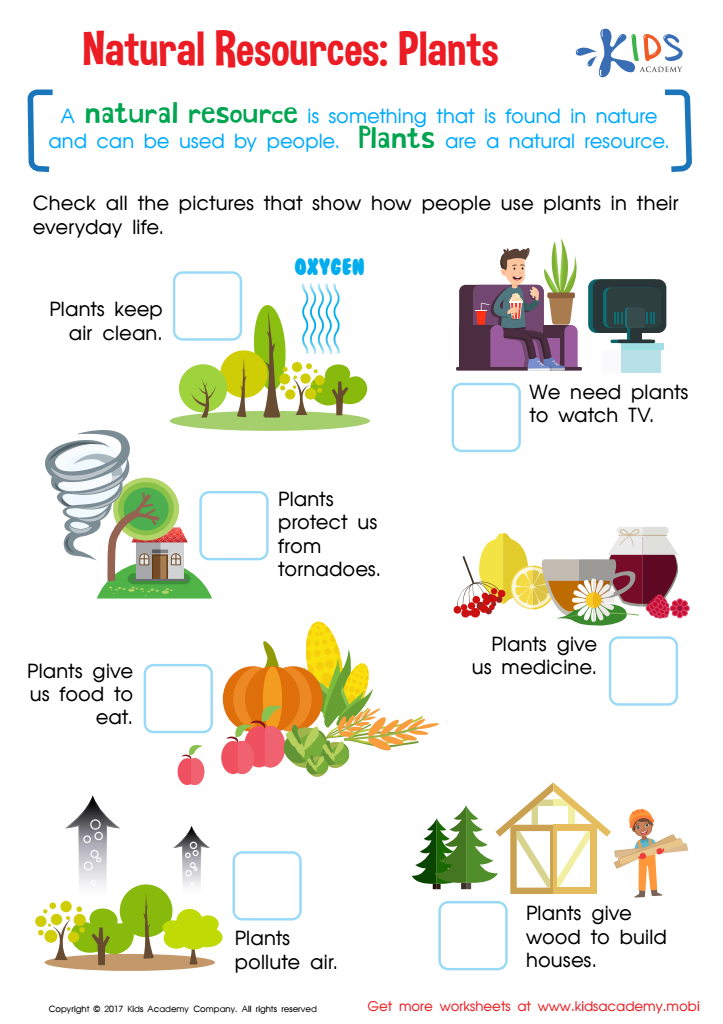

Natural Resources: Plants Worksheet
Understanding natural resources and caring for our planet is essential for children aged 3-9 because it lays the foundation for responsible environmental stewardship. During these formative years, children are naturally curious about their surroundings; this curiosity can be harnessed to teach them about sustainable practices and the significance of natural resources such as water, air, plants, and wildlife.
Parents and teachers play a crucial role in instilling this awareness. Educating young learners about their environment encourages them to appreciate nature and understand how their actions can impact it. Engaging children in discussions and activities related to conservation fosters a sense of responsibility towards the planet and inspires them to make eco-friendly choices.
Moreover, instilling this knowledge early on can lead to lifelong habits that contribute positively to environmental health. Simple lessons about recycling, reducing waste, and conserving energy can empower children to become proactive pillars of their communities. By nurturing an appreciation for our planet, educators and caregivers can cultivate a generation that values and protects natural resources, ensuring the well-being of the Earth for future generations. Ultimately, fostering this understanding is not just a benefit for individuals; it is essential for the sustainability of our world.
 Assign to My Students
Assign to My Students




